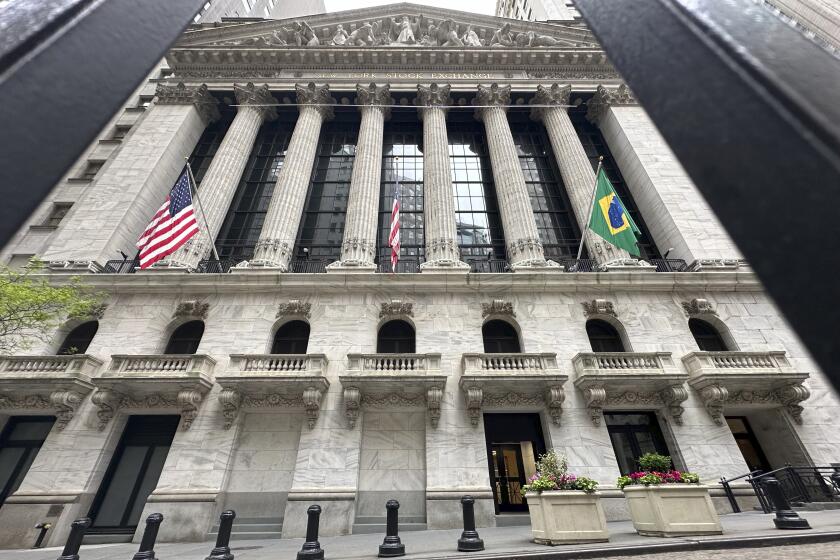AQMD Puts Off Ban on Solvent
Blitzed by a well-organized lobbying effort, Southern California air quality officials Friday postponed a decision to ban a solvent widely used by dry cleaners, but showed some interest in a more lenient measure drafted by the chemical industry and supported by the Davis administration.
In a raucous, all-day hearing, nearly 600 dry cleaners converged on the regional clean-air agency’s Diamond Bar headquarters to defend the chemical they call “perc.” They arrived by the busload wearing black armbands and waving protest banners. Many are Korean Americans, who charged that a ban on perchloroethylene would discriminate against them and would harm their businesses.
The South Coast Air Quality Management District governing board was poised to enact the nation’s first ban on the solvent, which makes clothes crisp and clean, but has been linked to cancer and other health problems. Instead, the board took no action after the public hearing and will revisit the matter at its Dec. 6 meeting.
At the outset of Friday’s meeting, Cynthia Verdugo-Peralta of Yorba Linda, Gov. Gray Davis’ appointee to the local air board, proposed a less stringent measure, which the board will consider next month. That alternative, which allows the continued use of perc with some restrictions, was written by attorneys representing industry trade groups and major chemical companies.
In the weeks leading up to the meeting, board members said they received numerous calls, faxes and requests for interviews from mom-and-pop dry cleaners, trade associations and a group representing perc makers such as Dow Chemical Co. and PPG Industries.
“I have never gotten so many phone calls,” said board member and Riverside attorney Jane Carney.
The industry-backed plan would give dry cleaners until January 2007 to switch to machines that emit roughly 40% fewer perc fumes. And rather than ban the substance, the proposal would allow dry cleaners to continue to emit perc, provided the fumes do not increase the risk of cancer for nearby residents to more than 25 cases in a million.
That standard currently applies to other businesses, including metal-plating shops, oil refineries and manufacturing plants. Dry cleaners say they want to be treated the same way.
“We just want you to treat small businesses in the basin as you do the biggest,” said Bob Wyman, a Los Angeles attorney representing the dry cleaners.
Dry cleaners say they’ve already reduced their perc emissions by 80% in the last decade.
“We’re being victimized again. We’re being called the polluters and the killers and the cause of all the problems with bad air and polluted water,” said Charles J. Kim, head of the Korean American Coalition.
A representative of Gov. Davis warned the air quality board that a ban on perc could have dire consequences for small business.
“The fragile nature of small business in California is such that the imposition of the rule will have a very significant impact on businesses in the state. We’re trying everything we can to hold small businesses together,” said H. Cooke Sunoo, interim director of the governor’s Small Business Reform Task Force.
Under the original proposal, 2,089 dry cleaners would be required to gradually stop using perc over the next 17 years and switch to machines that use other types of solvents or water and detergents to treat garments.
Some of those technologies are already used in New York City, San Francisco and Germany. In the Los Angeles region, 20% of new dry cleaners applying for permits say they will use alternatives to perc.
Air quality officials estimate that 850 tons of perc are emitted annually, ranking it as one of the most prevalent air toxins in the region. The chemical has been linked to cancer of the kidney, liver and breast. The proposal to ban perc won support from environmentalists, health experts and some scientists.
Tim Carmichael, executive director of the Coalition for Clean Air, chided the board for considering an industry plan that would perpetuate the use of perc.
“This is simply offensive,” Carmichael said. “It suggests this board trusts the chemical industry more than it trusts its own staff. You’d rather see an industry continue to use a chemical known to cause cancer than phase it out.”






